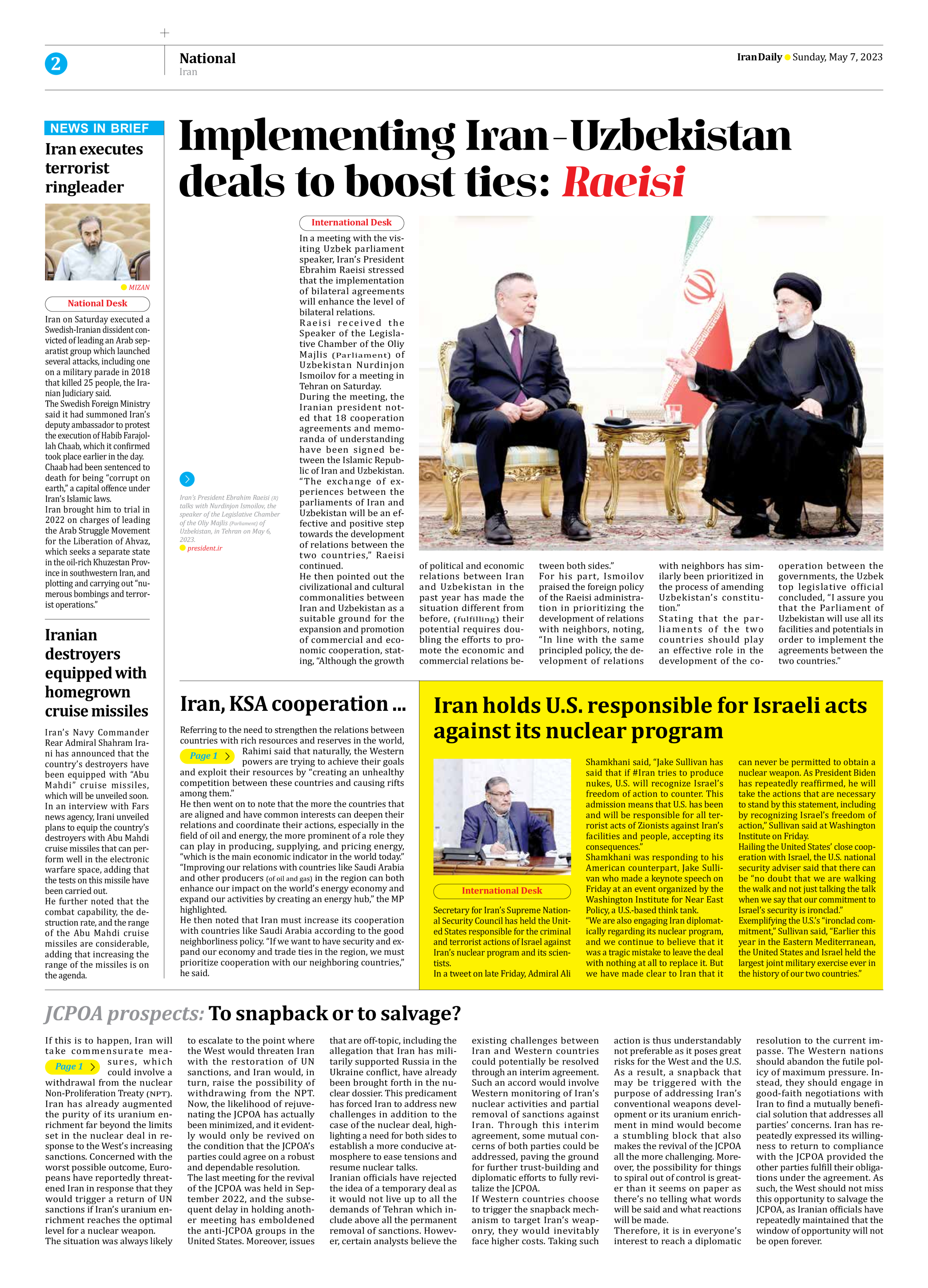
JCPOA prospects: To snapback or to salvage?
Page 1
If this is to happen, Iran will take commensurate measures, which could involve a withdrawal from the nuclear Non-Proliferation Treaty (NPT).
Iran has already augmented the purity of its uranium enrichment far beyond the limits set in the nuclear deal in response to the West’s increasing sanctions. Concerned with the worst possible outcome, Europeans have reportedly threatened Iran in response that they would trigger a return of UN sanctions if Iran’s uranium enrichment reaches the optimal level for a nuclear weapon.
The situation was always likely to escalate to the point where the West would threaten Iran with the restoration of UN sanctions, and Iran would, in turn, raise the possibility of withdrawing from the NPT. Now, the likelihood of rejuvenating the JCPOA has actually been minimized, and it evidently would only be revived on the condition that the JCPOA’s parties could agree on a robust and dependable resolution.
The last meeting for the revival of the JCPOA was held in September 2022, and the subsequent delay in holding another meeting has emboldened the anti-JCPOA groups in the United States. Moreover, issues that are off-topic, including the allegation that Iran has militarily supported Russia in the Ukraine conflict, have already been brought forth in the nuclear dossier. This predicament has forced Iran to address new challenges in addition to the case of the nuclear deal, highlighting a need for both sides to establish a more conducive atmosphere to ease tensions and resume nuclear talks.
Iranian officials have rejected the idea of a temporary deal as it would not live up to all the demands of Tehran which include above all the permanent removal of sanctions. However, certain analysts believe the existing challenges between Iran and Western countries could potentially be resolved through an interim agreement. Such an accord would involve Western monitoring of Iran’s nuclear activities and partial removal of sanctions against Iran. Through this interim agreement, some mutual concerns of both parties could be addressed, paving the ground for further trust-building and diplomatic efforts to fully revitalize the JCPOA.
If Western countries choose to trigger the snapback mechanism to target Iran’s weaponry, they would inevitably face higher costs. Taking such action is thus understandably not preferable as it poses great risks for the West and the U.S. As a result, a snapback that may be triggered with the purpose of addressing Iran’s conventional weapons development or its uranium enrichment in mind would become a stumbling block that also makes the revival of the JCPOA all the more challenging. Moreover, the possibility for things to spiral out of control is greater than it seems on paper as there’s no telling what words will be said and what reactions will be made.
Therefore, it is in everyone’s interest to reach a diplomatic resolution to the current impasse. The Western nations should abandon the futile policy of maximum pressure. Instead, they should engage in good-faith negotiations with Iran to find a mutually beneficial solution that addresses all parties’ concerns. Iran has repeatedly expressed its willingness to return to compliance with the JCPOA provided the other parties fulfill their obligations under the agreement. As such, the West should not miss this opportunity to salvage the JCPOA, as Iranian officials have repeatedly maintained that the window of opportunity will not be open forever.







